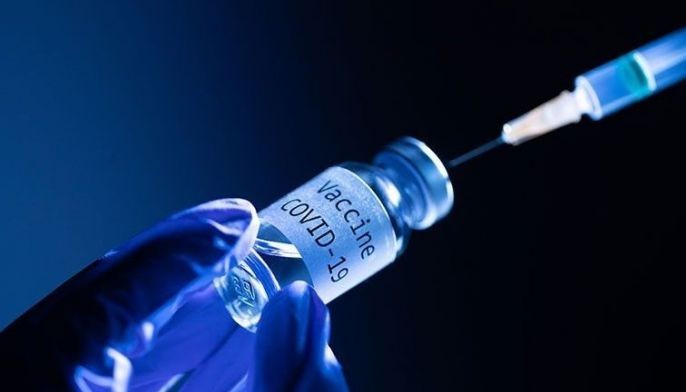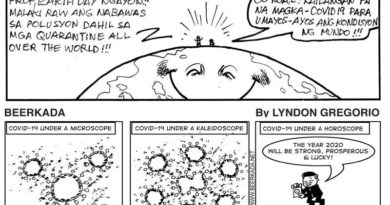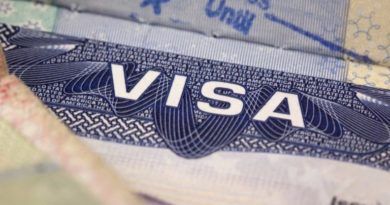ASEAN COVID-19 PANDEMIC UPDATES: PART 2: MYANMAR TO VIETNAM- Here is the ASEAN status as of Saturday, 7am, January 16, 2021
COVID-19 infection crosses 94.2 million globally as deaths cross more than 2.015 million.
.
The coronavirus COVID-19 is affecting 218 countries and territories around the world and 2 international conveyances.
.


.
Ads by: Memento Maxima Digital Marketing
@[email protected]
SPACE RESERVE FOR ADVERTISEMENT
.
Myanmar
Myanmar reported +513 new cases, taking total to 133,378 and +14 new deaths, total is at 2,926 deaths.
.

PHILIPPINES
.
The Philippines recorded +2,048 new cases, bringing the total to 496,646 with +137 new deaths, bringing total 9,876 deaths.
Senate seeks further hearings on vaccines
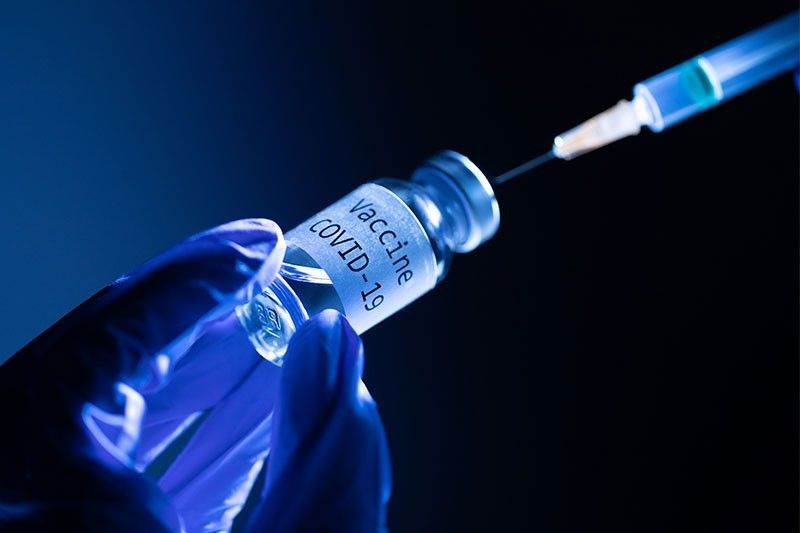
‘Too many inconsistencies’
MANILA, Philippines — Citing inconsistencies in the information provided by officials during the two-day hearing on the government’s vaccination program, Sen. Panfilo Lacson yesterday said senators may manifest an intention to hold another hearing on the issue when session resumes tomorrow.
In an interview over dwIZ, Lacson noted too many loose ends in the answers of the team of vaccine czar Carlito Galvez Jr. regarding vaccine acquisition.
“We will scrutinize the transcript (of the hearings); what they did not answer, what they avoided answering – and if we still have a question. We can manifest on the floor to extend another hearing because even if we adjourned, if the majority and minority senators agree that the information was not enough, we can call for another hearing,” Lacson said in Filipino.
“The first question is why is it no longer a government-to-government agreement and why is the government talking to Helen Yang,” said Lacson, as he recalled Galvez’s response to the question of Senate Minority Leader Franklin Drilon that they are now dealing with Sinovac president Helen Yang, who is based in Hong Kong.
“He clearly replied to Sen. Drilon – Helen Yang who is based in HK. There are too many inconsistencies,” he said.
Lacson said even Health Secretary Francisco Duque III admitted to senators that they were dealing with Yang.
“Sec. Duque was also asked, ‘who are you talking to?’ He named Helen Yang. Why are they talking to the president of Sinovac, what happened? Why is it government-to-private now?”
Lacson also noted Galvez’s claim that there would be Sinovac delivery by Feb. 20, to which presidential spokesman Harry Roque was quoted as telling the public not to be “choosy.”
The senator said Galvez kept changing his answers to the same questions on the matter.
“Maybe out of our 100 questions only less than 50 of them were answered,” Lacson said.
He said senators would discuss among themselves whether there is a need for the Senate committee of the whole to convene again to discuss the matter.
“I think there are a lot of loose ends, and if we will prepare a committee report, there would be too little information. There are hanging questions that are not answered, so our committee report would also be useless,” he said.

Donation, or discounted?
At the hearing on Monday, Lacson said vaccine officials declared that the procurement of vaccine through COVAX would be subject to a huge price cut. But on Friday, they said vaccines would be given for free.
Lacson said even the World Health Organization (WHO) reported that vaccines acquired through COVAX are free.
COVAX is the global initiative to ensure rapid and equitable access to COVID-19 vaccines for all countries, regardless of income level.
COVAX earlier announced that it had arrangements in place to access nearly two billion doses of COVID-19 vaccine candidates, on behalf of 190 participating economies.
“WHO said it was free. Why did they say, at first, it was not free – that there was only a discount. This is a donation not only of WHO but of rich countries,” Lacson said.
He said the confusion continued as other resource persons provided different answers to similar questions.
Lacson recalled that when Senate President Vicente Sotto III asked the Go Negosyo about the cost of the AstraZeneca vaccine, its official’s quick response was $5 each or about P250. Go Negosyo, a private corporation, is set to donate 50 percent of its planned vaccine procurement.
“When Sec. Galvez was asked, his immediate answer was about confidentiality disclosure agreement. We are the ones who appropriate the funds, why can’t we get such information? What is their real reason for not wanting to say the real price?” Lacson said.
He said there were reports about vaccine donations, including 44 million doses through COVAX, 8.5 million from the private sector, 14 million to be procured by local government units or a total of 66.5 million to be divided by two or 33.25 million vaccinees, as each person needs two doses.
“You will deduct it (33 million) from their target to inoculate about 70 million. The government will immediately save 33 million. The government will only spend for the remaining 36 million. So we ask, despite the big savings, why do we fund so much? Why do they keep the price secret – from becoming transparent?” Lacson noted.
“Not only that they’re not being honest, but they are also messing up the story. We are looking for information and it seems like they are confusing us deliberately,” said Lacson, as he recalled asking Galvez whether Sinovac, a Chinese vaccine, was part of COVAX, and the vaccine czar’s response was “it still is in the process of applying.”

Half-baked
Like Lacson, Sen. Imee Marcos said the information provided by the vaccine czar was not enough and half-baked. She said there is a need for the team of Galvez to go back to the drawing board and finalize the plan.
“We don’t have enough information. We are really having a hard time as Sec. Galvez has a different answer (to similar questions),” Marcos noted.
Aside from the conflicting cost of the vaccine, an issue Lacson raised, Marcos also lamented the time frame for the delivery of the vaccine.
“At first, they said that Sinovac will be delivered next month, but then they said we can still back out? I cannot understand,” Marcos pointed out.
She also noted that they earlier claimed that a few million will be available within one year and then they changed the timeframe to three years.
“I’m really confused. They said the procurement will go directly to LGUs and private corporations, then later we discovered that they (LGUs and companies) are still prohibited to manage the vaccines. From the Customs, the Department of Health will take over. So we got confused. We would want more information as the plan is a bit half-baked,” she pointed out.
On Friday at the hearing, Sen. Pia Cayetano reiterated her call for the national government to clarify how much it expects LGUs to shoulder for the purchase of COVID-19 vaccines.
“It’s still not clear to me how much you expect the LGUs to spend. I think that should be made very clear. LGUs will always want to provide for their constituents, but even for those that can afford, it is not clear regarding national support and to what extent,” Cayetano told Galvez and his team.
“There are many ways that (LGUs) can revive their economy and support their constituents. They could be providing subsidies for jeepney and tricycle drivers. They do not necessarily have to put all their funding into the vaccines, if the national government could commit to paying for such,” Cayetano stressed.
Sen. Richard Gordon, for his part, has proposed to train more Filipinos to administer vaccines as the Philippines looks to start rolling out its immunization plan in February.
“I will file a bill on Monday that during times of emergency or even there is no crisis, there should be training of vaccinators like dentists, veterinarians, medical technologists, and even those who do not have medical background,” he said.
“We can put to bear millions of our young people who may want to become doctors someday and can practice with vaccine, provided it’s under clinical supervision,” he added
.

SINGAPORE
.
Reported +30 new cases, taking the total to 59,059 and 0 new death, tally now 29 deaths.
All travellers to Singapore need to take Covid-19 PCR test on arrival from Jan 25

SINGAPORE – Singapore has tightened its border restrictions in response to new virus variants and the worsening global pandemic situation.
All travellers, including Singapore citizens and Permanent Residents, will have to take a Covid-19 Polymerase Chain Reaction (PCR) test when they arrive in Singapore.
This will take effect from Jan 24, 11.59pm, said the Ministry of Health (MOH) on Saturday (Jan 16).
The stay-home notice requirements, including the PCR test at the end of the stay, will continue to be in place.
Short-term visitors will also need travel insurance to cover the costs of their medical treatment in Singapore, if they are suspected of having the virus.
Those applying to enter Singapore under the air travel pass and reciprocal green lane arrangements will need to have a minimum coverage of $30,000 for their Covid-19-related medical treatment and hospitalisation costs in Singapore, from Jan 31, 11.59pm.

These short-term visitors are currently required to bear the full cost of medical treatment, if they are suspected of having Covid-19 or if they need medical treatment for the virus while in Singapore.
As a further precaution, all returning Singapore citizens and PRs from Britain and South Africa will be subject to an additional seven-day self-isolation at their place of residence, following their 14-day SHN at dedicated facilities.
This will take effect from Jan 18, 11.59pm.
They will be tested at the end of their SHN, and again after they have completed their seven-day self-isolation period.

These new restrictions come amid warnings from American federal health officials that a far more contagious variant of the coronavirus first identified in Britain could become the dominant source of infection in the United States by March.
This is likely to lead to a surge in cases and deaths, according to a forecast from the Centers for Disease Control and Prevention.
Cases also continue to rise worldwide, with new variants detected in various countries like Brazil and South Africa, even as the global death toll hit two million this weekend.
MOH said: “As the global situation evolves, we will continue to adjust our border measures to manage the risk of importation and transmission to the community.
“The Ministry of Health will also continue to review the data and evidence on any new viral strains and update the measures accordingly.”
Foreign workers will also need to take tests once they arrive in Singapore.
Newly arrived work permit and S pass holders from the construction, marine and process sectors from higher-risk countries or regions must take an on-arrival PCR test and serology test from Jan 18, said the Multi-Ministry Taskforce (MTF).
“The on-arrival PCR test will enable early detection of Covid-19 cases, provide access to medical care quickly, and reduce the risk of leakage of imported cases into the community,” MTF said.
It added that the on-arrival serology test, on the other hand, will allow for the identification of workers who have recovered and have antibodies.
These recovered workers will be exempted from SHN, additional seven-day testing regime and rostered routine testing requirements.
“This can help to minimise work disruption and associated costs from the SHN and tests. The cost of the new on-arrival tests will be borne by the employers,” MTF said.


.
Ads by: Memento Maxima Digital Marketing
@[email protected]
SPACE RESERVE FOR ADVERTISEMENT
.
THAILAND
UPDATES:
Reported +188 new cases, total at 11,450, +0 new death, total deaths stands at 69.
.
COVID-19 OUTBREAK
THAILAND SITUATION
-
Total cases:11,680
-
Recovered:8,906
-
Daily New Cases:230
-
Deaths:70
-
Rank:128


.
Ads by: Memento Maxima Digital Marketing
@[email protected]
SPACE RESERVE FOR ADVERTISEMENT
.
VIET NAM
Vietnam’s Ministry of Health had +5 new cases and a total of 1,536 cases, no new death, total remains at 35.
.
OVID-19 update in Việt Nam on Saturday evening
%20(15).jpg)
Co-operation needed to deal with medical challenges
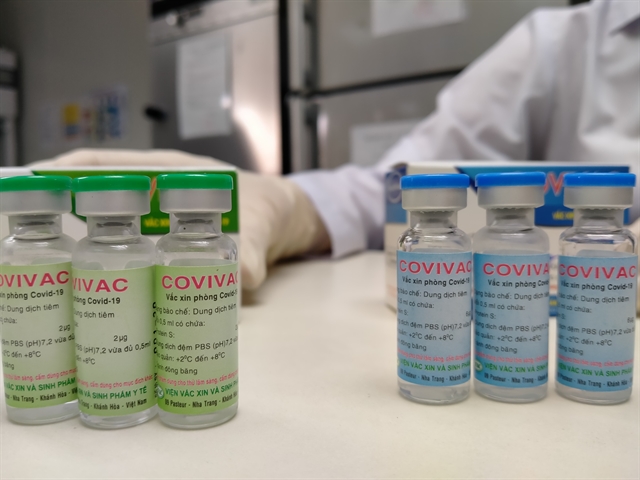
HÀ NỘI — Delegates discussed public health policies and measures and international co-operation with the COVID-19 pandemic and prevent health threats during a seminar yesterday.
The event was held in Hà Nội by the Ministry of Foreign Affairs and the French Embassy.
Speaking at the seminar, Deputy Minister of Foreign Affairs Tô Anh Dũng said the COVID-19 pandemic has no borders, so no country or territory can individually control and defeat it.
He emphasised that, along with domestic efforts to repel the pandemic, being a responsible member state for international issues, Việt Nam would work with other countries and the international community in this war.
Việt Nam also supports the WHO in co-ordinating global efforts to prevent and fight the pandemics.
As Chair of ASEAN 2020, Việt Nam promoted joint efforts of the region in the prevention and control of the COVID-19 pandemic. In the framework of the United Nations, on December 27, 2020, for the first time, the international community organised ‘International Day for Disease Control and Prevention’ under a resolution passed by the United Nations.
Assessing COVID-19 pandemic prevention and control in Việt Nam, WHO Representative in Việt Nam Kidong Park said Việt Nam was a country with many potential risks of COVID-19 outbreak due to its boundary to many countries. But, up to now, the pandemic prevention and control in Việt Nam had been implemented very effectively when comparing the number of cases and deaths caused by COVID-19 with countries with a population larger than or equal to Việt Nam.
Park suggested Vietnamese people continue to implement protective measures such as washing hands, wearing masks everywhere, stay calm and together hope to achieve community immunity soon.
Park also congratulated Việt Nam for having two COVID-19 vaccines going into clinical trials.
Participants at the seminar agreed that in the context of the global war against the COVID-19 pandemic, the vaccine story is opening up new hope, but still needs co-ordination and efforts on a global scale. — VNS
Source: world meters

